#my thoughts and feelings on s2
Text
“Not moving on is worse.”
In the context of season two, I struggle to reconcile the intersection of sincerity and comedy, and the idea of what pains and traumas we are meant to understand at the deeper level of what trauma is with those that serve only the purpose of comedic timing. This isn’t limited to one character, but rather to the season as a whole.
Season one highlighted childhood trauma and the ability to move on from that, becoming the best adult version of oneself possible. We see this evident in Ed, Stede, and Jim specifically as we are allowed to explore their pasts and their traumas — and we can presume that no one on the crew of the Revenge is without trauma (Fang’s dog, anyone?) of some kind that they carry with them. Stede handles his traumas and how to process them through running away and avoiding the issue until he no longer can. Ed does something similar, though he is able to craft a facade to use as a shield and a weapon, even if he never delivers a killing blow himself. Jim dedicates their life to revenge.
We witness all of these characters allow the defining characteristic of love to be allowing themselves to be saved and valued for who they are — not for what they can offer.
When season two opens, we as an audience see Ed at, arguably, his worst (I say arguably because we didn’t see Blackbeard in his prime, so… do with that what you will, I suppose). We see how this affects beloved and treasured characters, as well as new characters that we have yet to fall in love with. We see Fang fall apart not once but twice within the first two episodes alone. In episode two, we see Ed — a much beloved and adored character who we know intimately — lash out when confronted for his behavior. He lashes out at his crew and physically mutilates his closest confidant for daring to question him. “But that’s piracy!” And you’re right! But don’t we watch the first episode of season one highlight how much Stede Bonnet wants to change piracy? Isn’t this show supposed to be about found family, and getting better, and finding healing? In which case, we’re watching Ed behave abusively in the wake of his mental struggles as he once again attempts to hide behind the same facade that has protected him in the past. Ed suffers this breakdown in response to not one but two perceived rejections from the two people he would claim to be the most important in his life, and in a classic mental illness fashion, he barricades himself off and settles into the persona that is everything he doesn’t want to be.
His crew fears him. They’ve been kidnapped and essentially held hostage under the man they believe to have murdered their crew — their friends — and are watching him continue to devolve. Enter Izzy Hands and Jim Jimenez. Izzy is well aware of his hand in Ed’s state. “Well, he instigated it!” He did. He wanted back a version of Blackbeard who he saw as safe territory: a necessary evil for the continued survival and safety of the crew, ship, and Ed and Izzy themselves. And then he watched Edward “Only Ever Killed One Person Personally” Teach fulfill the legend he’s always been known as, and watched him become someone who couldn’t care less about life or death or anything in between. Ed surpassed and buried the version of Blackbeard that Izzy wanted to return, and he was force-fed the consequences of this with an unavoidable cruelty. “Well, he deserved what he got! Violence was always on the table, because it’s piracy!” But once again, we’re operating under the assumption that the big themes of this show are healing from trauma and being worthy of being loved even if we’ve done bad things.
While we’re on that topic, though, let’s explore that. Ed’s childhood trauma comes from his abusive father. He carries the weight of that abuse with him well into adulthood, as well as the weight of what he had to do to survive it. What he had to do to save his mother. This season sees him abusing those around him. Despite this, despite his erratic behavior and the mistreatment of his crew, he is still loved (by crew and fandom both, if I may add). He is still loved by Stede, despite the trail of blood he leaves in his wake. Stede is still longing to find him, despite knowing what he’s done and what he’s now capable of, and this continues to reiterate that idea of you deserve to be loved even when you’ve done wrong.
And then, Stede finds him.
We as an audience witness Ed make the choice to stay alive. We watch the thought process, we see that he chooses to fight for that love that comes alongside being saved. Being wanted. Being seen for who you are and loved because of it. And up to here, I’m on board. I’m excited to see what’s next and how Ed will reconcile for what he’s done and the harm he’s caused at the hands of his mental illness — because the truth is, we harm people when we aren’t adequately being responsible for our mental illness. This is a real-world thing. We lash out when we’re hurt, or when we’re rejected, or when we’re struggling. When we’re suffering, we often can’t see past ourselves to see whether or not we’re also causing others to suffer. This does not make us bad people — and it didn’t make Ed one. And then the “apology” came and went. The only member of the crew Ed really sits and ever has a drawn out conversation with about anything is Fang, and even this is somewhat shallow. Fang absolves him and moves on. We don’t get to see whether or not Ed ponders this conversation long-term or whether or not he battles with himself over how to move on.
We’re left with a traumatized crew who semi-accepted a half-hearted apology and a beloved character who hasn’t actually been held accountable at all. “But he apologized and wore the bell and fixed that door latch!” Yes, and? He physically mutilated his first mate, instructed him to be killed, traumatized an entire crew — and this all takes a backseat to his relationship with Stede. And what a stunning scene between the two of them in the moonlight, where Ed finds it in him to ask to take things slow. Where he recognizes his needs and vocalizes them. I left this episode feeling so hopeful, because half-baked apology aside, Ed is actively learning to vocalize his thoughts and ask for what he needs when he recognizes in himself that something is going to be harmful to him. We had a kiss, we had Ed asking for help when he needed it, we had a proposal, we had “not moving on is worse,” and even knowing only three episodes remained, I left feeling like we had been so perfectly set up to see how things were only going to keep improving.
In the first episodes of the season, we see murderous raids and mutilated first mates and two suicide attempts (though I suppose one was more of a mass murder-suicide attempt?) and these are all thrown together. In episode six, Stede deescalates a raid from a bloodbath of his own crew and sends another crew on their way with the lessons and values that he has been pursuing since the first episode of the first season. He then, in a parallel to the French ship of season one, causes a man’s death. This is highlighted as a turning point, something that can’t be ever moved on from. (“There’s no coming back from that.”) But what about the other traumatic events of the season that are treated as jokes? Izzy’s drinking, day in and day out, bottle after bottle after bottle — coping with the reality of his life and the way it’s been altered beyond recognition. The mop he used as a makeshift leg snapping, forcing him to pull himself away from the crew with his own hands. Lucius’s mention of being sexually assaulted and Stede’s look of disgust, the way he literally runs away from the conversation. Lucius never gets to air out his traumas, not really, not with someone who listens and tells him he’s safe and allows him to talk things through. Even Pete gets ill instead of being able to offer support.
I struggle to reconcile what is and isn’t comedy in this season, or what violence is meant to be taken for what it is. The Ed and Izzy breakdowns in episodes one and two sat far too close to my chest for me to look past them into comedy — and the suicidality of both men was glossed over and moved on from so quickly, never explored. Did Izzy’s “I wanna go” in the final episode mean he never moved on? That some part of him was still lying in that room with a gun to his head? You don’t become non-suicidal in a matter of days — is there still something lingering in the back of Ed’s mind? There was never a conversation about it, and there was never anything between the two of them that could allow me comfort in knowing that they had reached some sort of understanding. This season pulled domestic abuse, alcohol abuse, and suicidal tendencies straight from my own traumas and never held anyone accountable for any of them. There was no healing. There was no real talking it through. “Well, it’s not a rom-com, so—” Except it continues to be presented as one. Shortcomings of storylines of characters that seem to have been cast aside or mischaracterized this season aside, I cannot for the life of me reconcile how a show about kindness and moving on and being loved amidst all of your flaws could have a season so wrought with traumas and yet never discuss them. Never explore them in a way that allows me to move on. I love this show and there were so many good things about this season; I love these characters, and yet I feel so disconnected from it for the first time in over a year. Not moving on is worse, sure, but moving on without accountability leaves wounds unable to heal. How do you move on from that?
175 notes
·
View notes
Text
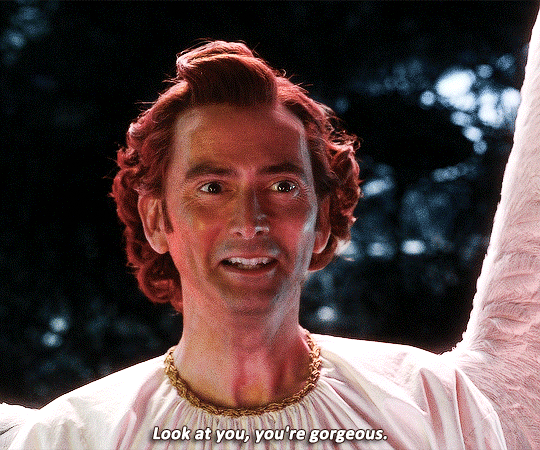

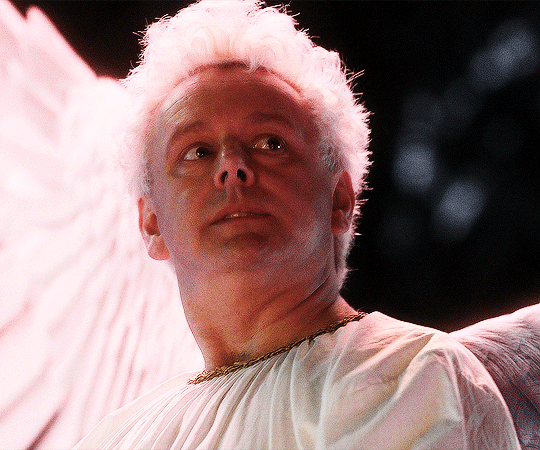
... Oh. You made it all yourself?
#good omens#ineffable husbands#goodomensedit#good omens s2#good omens season 2#gomens#aziraphale#crowley#david tennant#michael sheen#my gifs#aziraphale really thought he called him gorgeous 🥺#ok i feel like i giffed all i wanted see you all on thursday when we'll be giffing heartstopper
6K notes
·
View notes
Text
So I accidentally almost got into an argument on Twitter, and now I'm thinking about bad historical costuming tropes. Specifically, Action Hero Leather Pants.
See, I was light-heartedly pointing out the inaccuracies of the costumes in Black Sails, and someone came out of the woodwork to defend the show. The misunderstanding was that they thought I was dismissing the show just for its costumes, which I wasn't - I was simply pointing out that it can't entirely care about material history (meaning specifically physical objects/culture) if it treats its clothes like that.
But this person was slightly offended on behalf of their show - especially, quote, "And from a fan of OFMD, no less!" Which got me thinking - it's true! I can abide a lot more historical costuming inaccuracy from Our Flag than I can Black Sails or Vikings. And I don't think it's just because one has my blorbos in it. But really, when it comes down to it...
What is the difference between this and this?
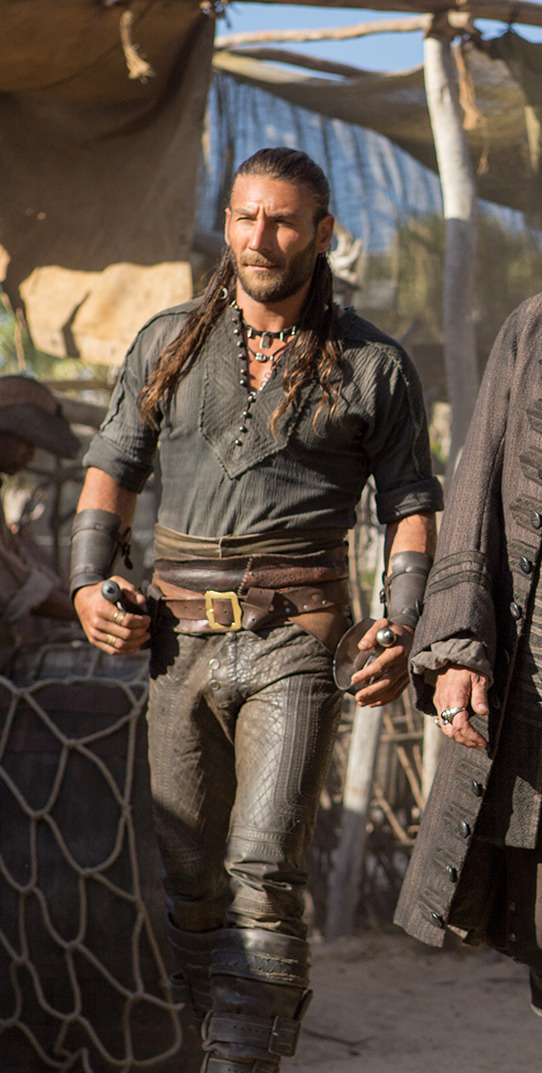
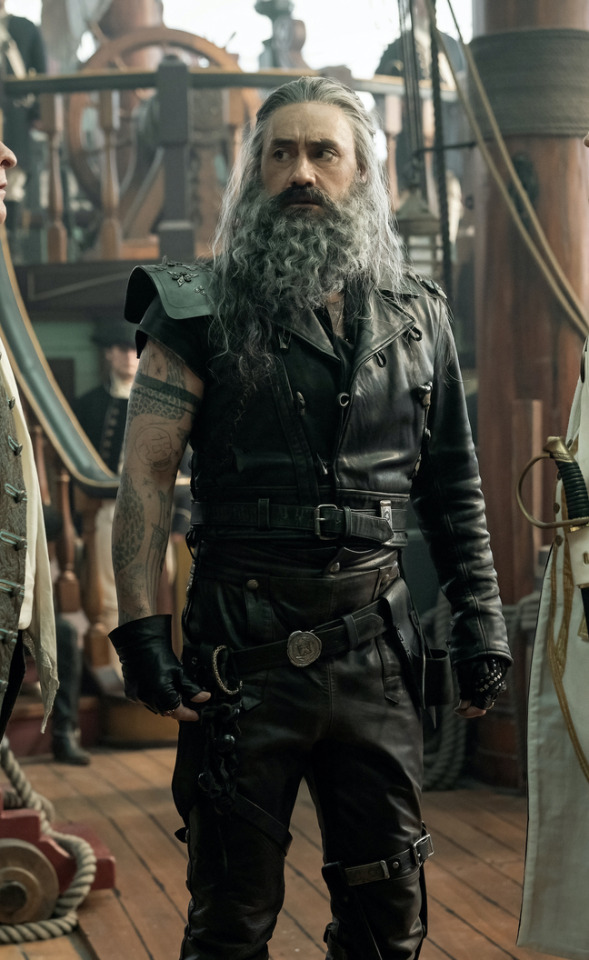
Here's the thing. Leather pants in period dramas isn't new. You've got your Vikings, Tudors, Outlander, Pirates of the Caribbean, Once Upon a Time, Will, The Musketeers, even Shakespeare in Love - they love to shove people in leather and call it a day. But where does this come from?
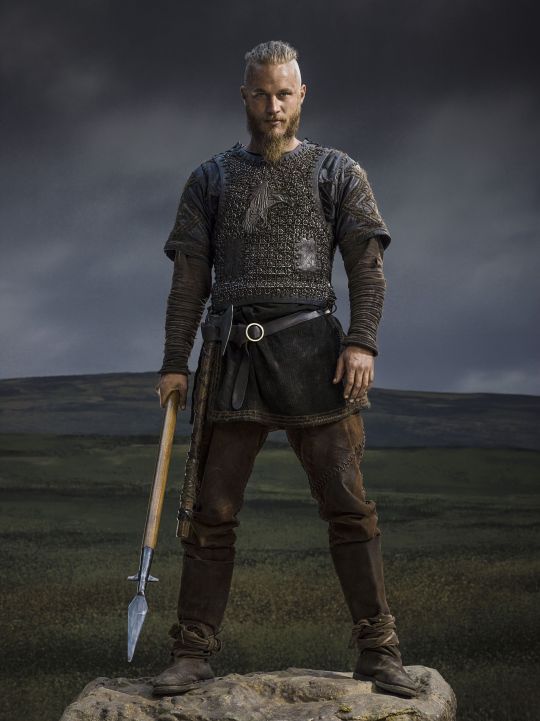
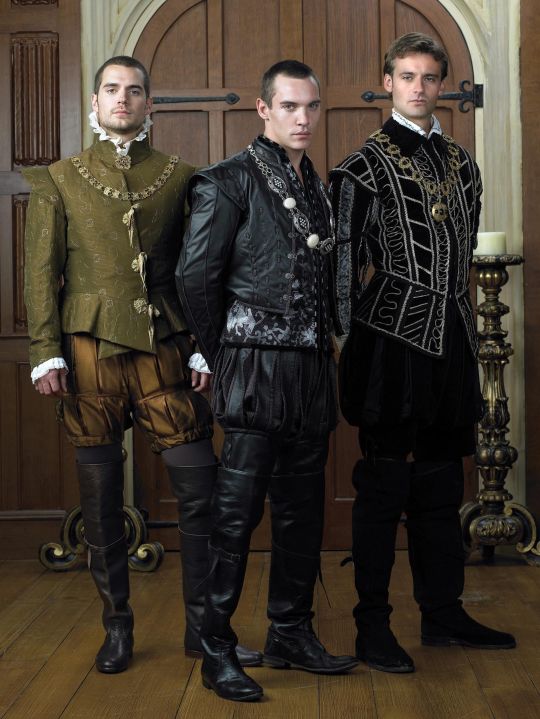
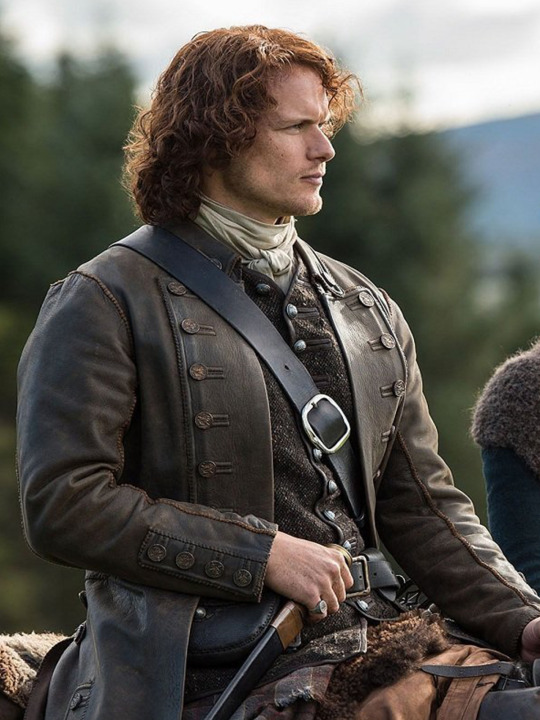

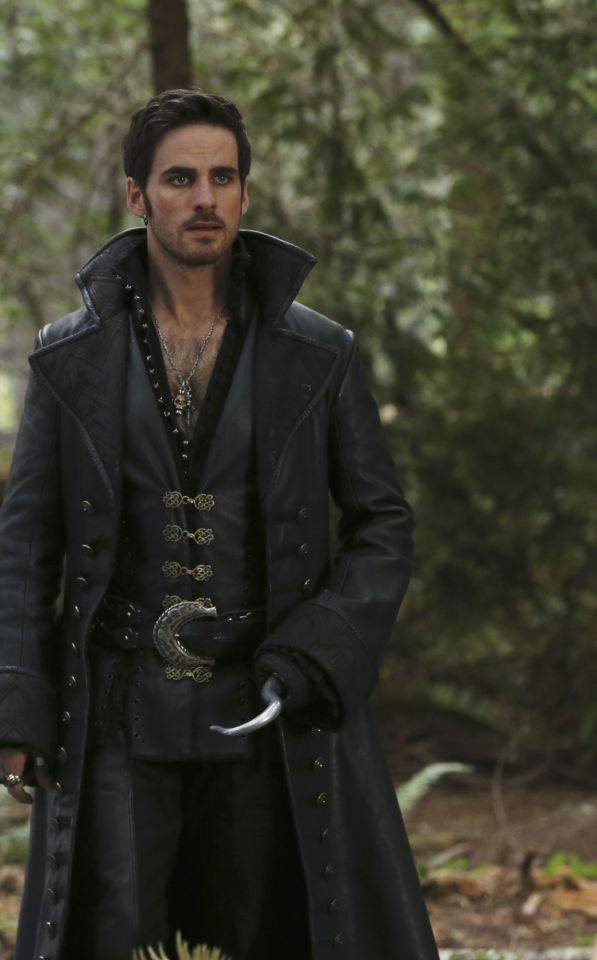
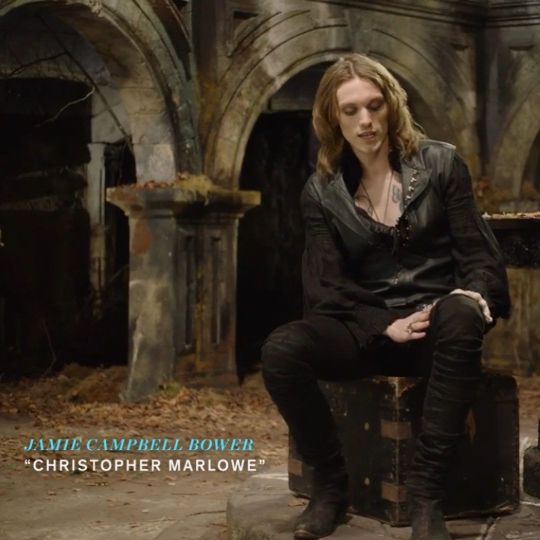
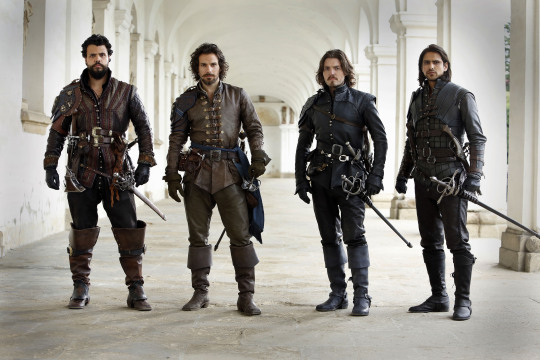
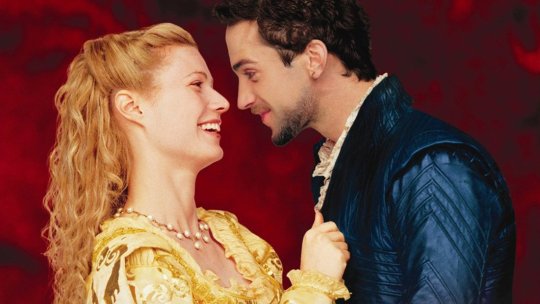
Obviously we have the modern connotations. Modern leather clothes developed in a few subcultures: cowboys drew on Native American clothing. (Allegedly. This is a little beyond my purview, I haven't seen any solid evidence, and it sounds like the kind of fact that people repeat a lot but is based on an assumption. I wouldn't know, though.) Leather was used in some WWI and II uniforms.
But the big boom came in the mid-C20th in motorcycle, punk/goth, and gay subcultures, all intertwined with each other and the above. Motorcyclists wear leather as practical protective gear, and it gets picked up by rock and punk artists as a symbol of counterculture, and transferred to movie designs. It gets wrapped up in gay and kink communities, with even more countercultural and taboo meanings. By the late C20th, leather has entered mainstream fashion, but it still carries those references to goths, punks, BDSM, and motorbike gangs, to James Dean, Marlon Brando, and Mick Jagger. This is whence we get our Spikes and Dave Listers in 1980s/90s media, bad boys and working-class punks.
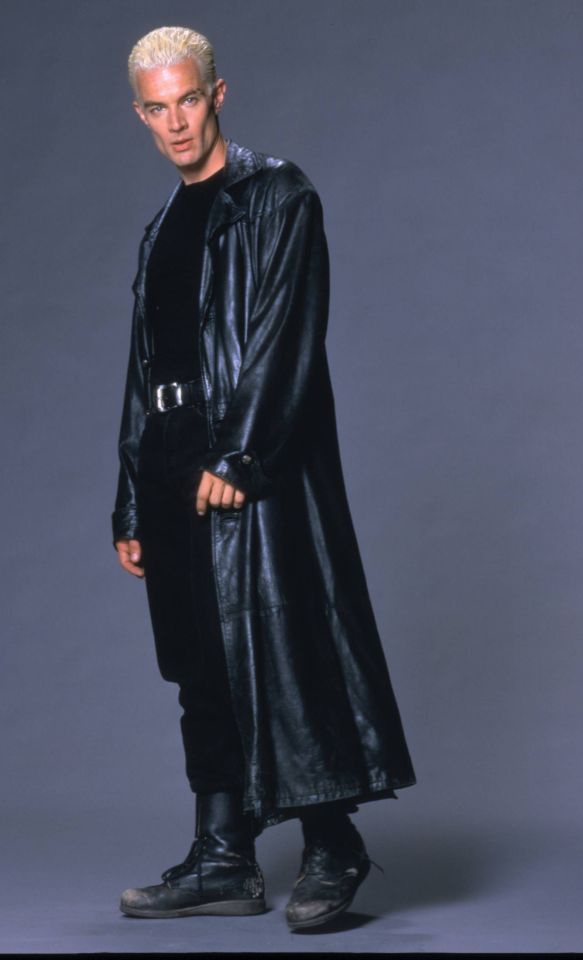
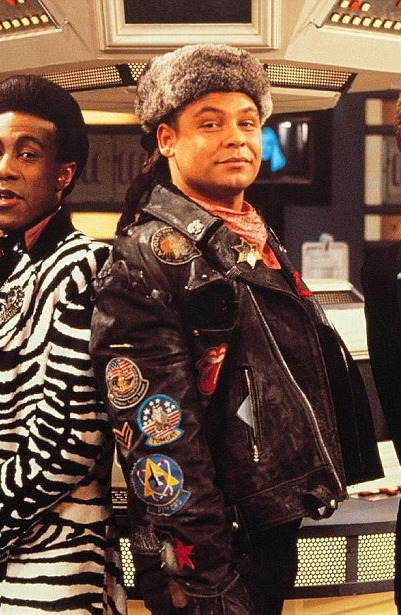
And some of the above "historical" design choices clearly build on these meanings. William Shakespeare is dressed in a black leather doublet to evoke the swaggering bad boy artist heartthrob, probably down on his luck. So is Kit Marlowe.
But the associations get a little fuzzier after that. Hook, with his eyeliner and jewellery, sure. King Henry, yeah, I see it. It's hideously ahistorical, but sure. But what about Jamie and Will and Ragnar, in their browns and shabby, battle-ready chic? Well, here we get the other strain of Bad Period Drama Leather.
See, designers like to point to history, but it's just not true. Leather armour, especially in the western/European world, is very, very rare, and not just because it decays faster than metal. (Yes, even in ancient Greece/Rome, despite many articles claiming that as the start of the leather armour trend!) It simply wasn't used a lot, because it's frankly useless at defending the body compared to metal. Leather was used as a backing for some splint armour pieces, and for belts, sheathes, and buckles, but it simply wasn't worn like the costumes above. It's heavy, uncomfortable, and hard to repair - it's simply not practical for a garment when you have perfectly comfortable, insulating, and widely available linen, wool, and cotton!
As far as I can see, the real influence on leather in period dramas is fantasy. Fantasy media has proliferated the idea of leather armour as the lightweight choice for rangers, elves, and rogues, a natural, quiet, flexible material, less flashy or restrictive than metal. And it is cheaper for a costume department to make, and easier for an actor to wear on set. It's in Dungeons and Dragons and Lord of the Rings, King Arthur, Runescape, and World of Warcraft.
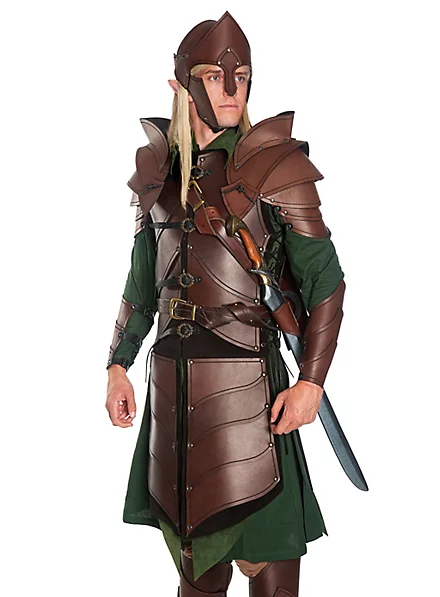
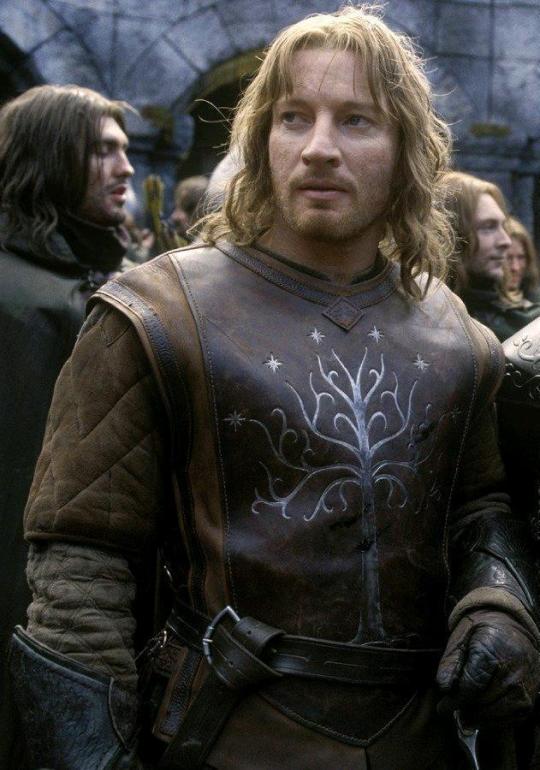
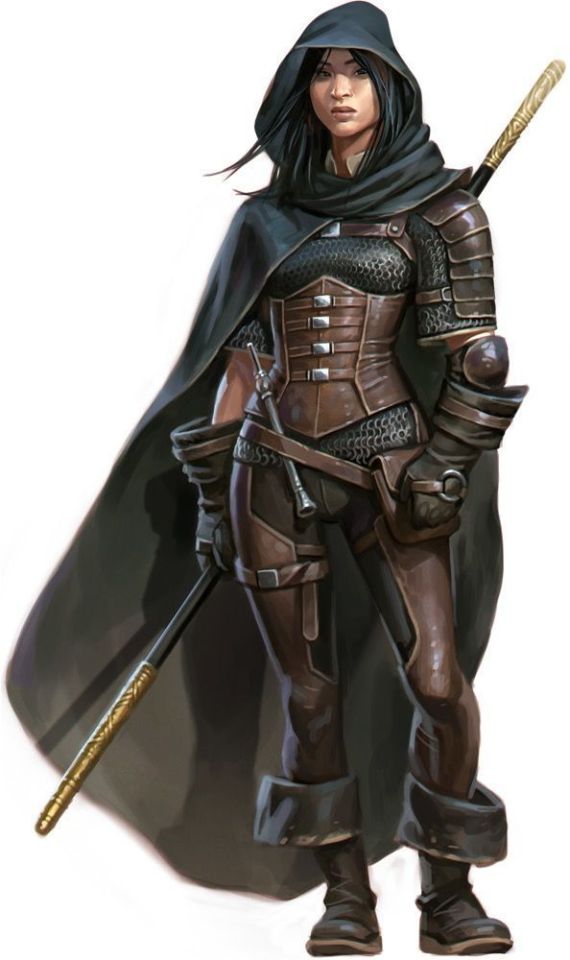
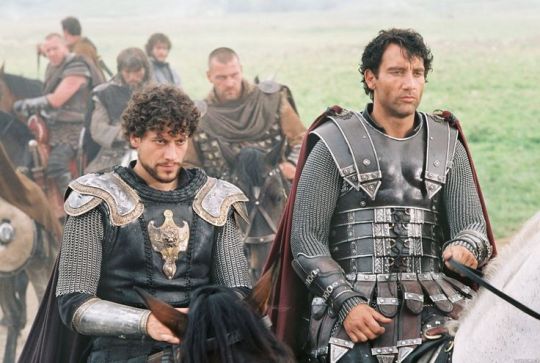

And I think this is how we get to characters like Ragnar and Vane. This idea of leather as practical gear and light armour, it's fantasy, but it has this lineage, behind which sits cowboy chaps and bomber/flight jackets. It's usually brown compared to the punk bad boy's black, less shiny, and more often piecemeal or decorated. In fact, there's a great distinction between the two Period Leather Modes within the same piece of media: Robin Hood (2006)! Compare the brooding, fascist-coded villain Guy of Gisborne with the shabby, bow-wielding, forest-dwelling Robin:
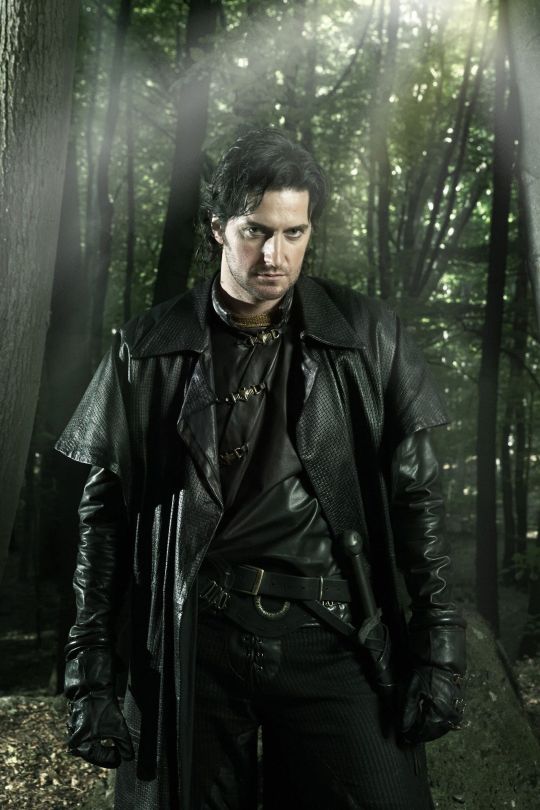
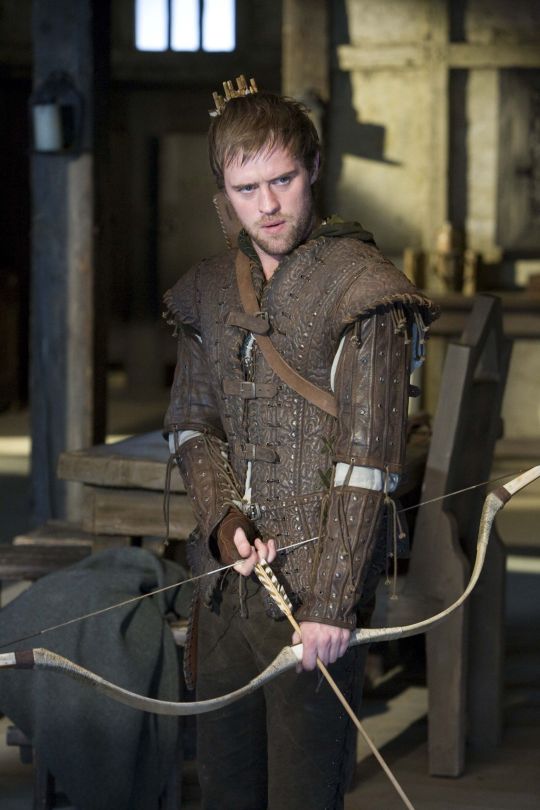
So, back to the original question: What's the difference between Charles Vane in Black Sails, and Edward Teach in Our Flag Means Death?
Simply put, it's intention. There is nothing intentional about Vane's leather in Black Sails. It's not the only leather in the show, and it only says what all shabby period leather says, relying on the same tropes as fantasy armour: he's a bad boy and a fighter in workaday leather, poor, flexible, and practical. None of these connotations are based in reality or history, and they've been done countless times before. It's boring design, neither historically accurate nor particularly creative, but much the same as all the other shabby chic fighters on our screens. He has a broad lineage in Lord of the Rings and Pirates of the Caribbean and such, but that's it.
In Our Flag, however, the lineage is much, much more intentional. Ed is a direct homage to Mad Max, the costuming in which is both practical (Max is an ex-cop and road warrior), and draws on punk and kink designs to evoke a counterculture gone mad to the point of social breakdown, exploiting the thrill of the taboo to frighten and titillate the audience.
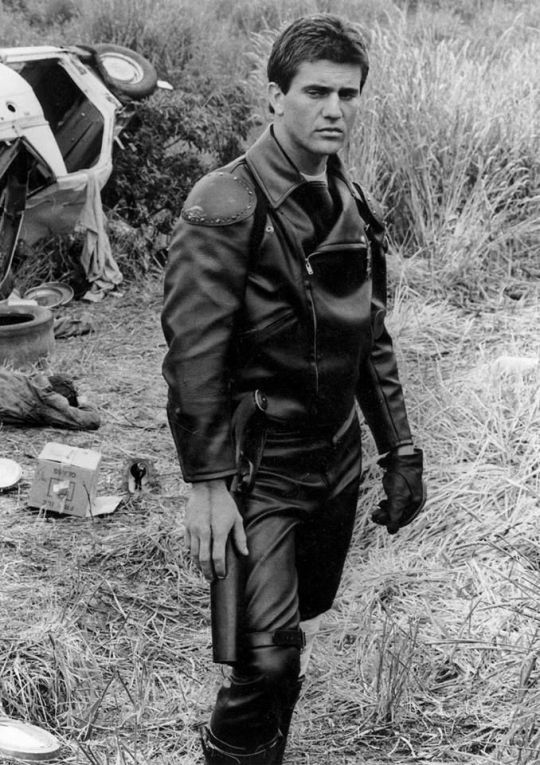
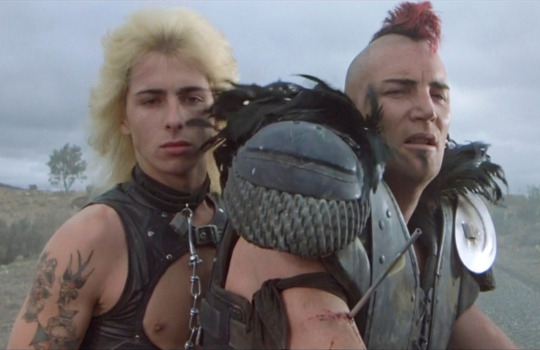
In particular, Ed is styled after Max in the second movie, having lost his family, been badly injured, and watched the world turn into an apocalypse. He's a broken man, withdrawn, violent, and deliberately cutting himself off from others to avoid getting hurt again. The plot of Mad Max 2 is him learning to open up and help others, making himself vulnerable to more loss, but more human in the process.
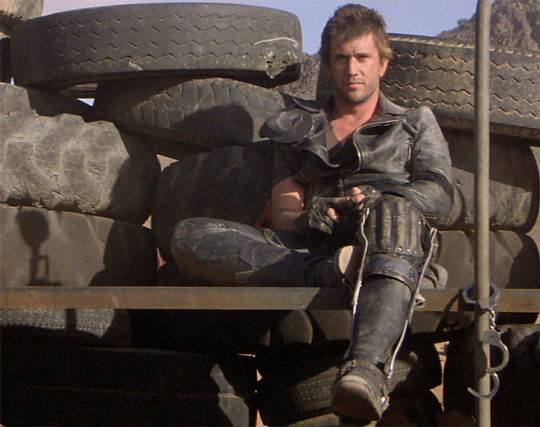
This ties directly into the themes of Our Flag - it's a deliberate intertext. Ed's emotional journey is also one from isolation and pain to vulnerability, community, and love. Mad Max (intentionally and unintentionally) explores themes of masculinity, violence, and power, while Max has become simplified in the popular imagination as a stoic, badass action hero rather than the more complex character he is, struggling with loss and humanity. Similarly, Our Flag explores masculinity, both textually (Stede is trying to build a less abusive pirate culture) and metatextually (the show champions complex, banal, and tender masculinities, especially when we're used to only seeing pirates in either gritty action movies or childish comedies).
Our Flag also draws on the specific countercultures of motorcycles, rockers, and gay/BDSM culture in its design and themes. Naturally, in such a queer show, one can't help but make the connection between leather pirates and leather daddies, and the design certainly nods at this, with its vests and studs. I always think about this guy, with his flat cap so reminiscient of gay leather fashions.
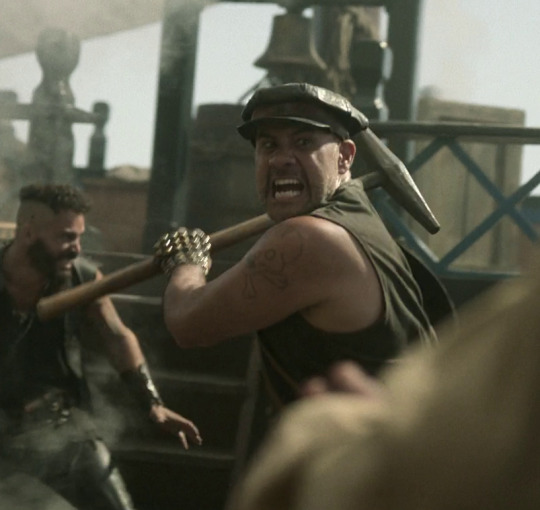
More overtly, though, Blackbeard and his crew are styled as both violent gangsters and countercultural rockstars. They rove the seas like a bikie gang, free and violent, and are seen as icons, bad boys and celebrities. Other pirates revere Blackbeard and wish they could be on his crew, while civilians are awed by his reputation, desperate for juicy, gory details.
This isn't all of why I like the costuming in Our Flag Means Death (especially season 1). Stede's outfits are by no means accurate, but they're a lot more accurate than most pirate media, and they're bright and colourful, with accurate and delightful silks, lace, velvets, and brocades, and lovely, puffy skirts on his jackets. Many of the Revenge crew wear recognisable sailor's trousers, and practical but bright, varied gear that easily conveys personality and flair. There is a surprising dedication to little details, like changing Ed's trousers to fall-fronts for a historical feel, Izzy's puffy sleeves, the handmade fringe on Lucius's red jacket, or the increasing absurdity of navy uniform cuffs between Nigel and Chauncey.
A really big one is the fact that they don't shy away from historical footwear! In almost every example above, we see the period drama's obsession with putting men in skinny jeans and bucket-top boots, but not only does Stede wear his little red-heeled shoes with stockings, but most of his crew, and the ordinary people of Barbados, wear low boots or pumps, and even rough, masculine characters like Pete wear knee breeches and bright colours. It's inaccurate, but at least it's a new kind of inaccuracy, that builds much more on actual historical fashions, and eschews the shortcuts of other, grittier period dramas in favour of colour and personality.
But also. At least it fucking says something with its leather.
#everyone say 'thank you togas' for not including a long tangent about evil rimmer in red dwarf 5x05#Our Flag Means Death#Togas does meta#and yes these principles DO fall apart slightly in s2 and i DON'T like those costumes as much#don't get me wrong they're fun and gorgeous - but generally a bit less deep and more inaccurate. so. :(#I'm not sure this really says anything new about Our Flag but I just needed to get my thoughts out#i hate hate hate Gritty Period Drama costumes they're so boring and so ugly and so wrong#god bless OFMD for using more than 3 muted colours and actually putting men in heels (and not as a shorthand for rich/foppish villainy) <3#looking at that Tudors still is insane like they really will go to any lengths to not make men feel like they've got bare legs XD#image descriptions in alt text#and yes i DID just sink about two hours into those so you'd better appreciate them
1K notes
·
View notes
Photo
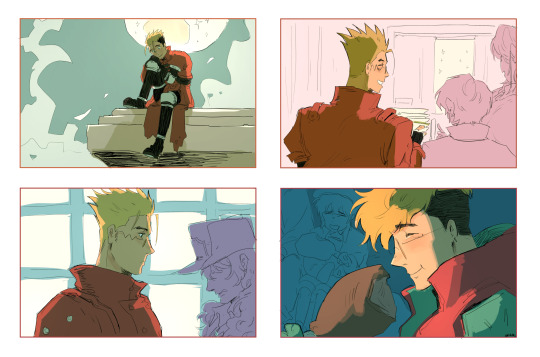


i’ll find you again in every universe. let us be a little more honest, let us have a little more time.
#vashwood#vash the stampede#nicholas d wolfwood#trigun#despite it all though badlands rumble is like. the only universe where we get wolfwood thinking vash died first... and i think that means a#lot to their relationship and how it may bloom if there was more to badlands rumble considering vash literally saw wolfwood carrying a piece#of vash after his supposed death. u know! despite the short time they were together vash still meant so much to wolfwood that he couldn't#just move on or forget him in anyway. needed to keep a piece of him for himself and the rest of his days. but ofc vash lives and wolfwood#was like ill beat ur fucking ass into tomorrow. there's just so much honesty in vash being able to see that gesture bc he wouldnt know#otherwise just how much he might mean to him. ANYWAY. trimax with with the eternal pining featuring the two chapters where imo#where the both of them really fell for each other... i wrote my thoughts about this on another comic i did before#but vash solidifying his feelings during the hospital arc -- ww solidifies his when he realizes his allegiances are permanently with vash#98 my lovelies but also to me they are so one-sided bc ww pined like no tomorrow and vash only realizes after ep 23?24? his heart did tickle#whenever ww complimented his smile though#and tristamp vw my beloveds. it really just feels like they get the chance to be closer and closer and more honest with each other#with every version that comes about. in trimax they knew how little time they had but struggled so desperately to get closer. in 98 ww felt#more willing to forsake for vash. in badlands rumble theyre Angry but as mentioned earlier ^ more blatant truth... due to circumstances#mainly but has the chance to lead to discussions and tristamp literally. first day of knowing each other ww saves vash - 2 days later vash#saves ww like. Man. AND NOW THEY MAY POTENTIALLY GET EVEN CLOSER!!!! with s2....#ruporas art
5K notes
·
View notes
Text
no because really, i think stede is operating in a way he thinks will win him respect. i think he's operating in a way he thinks is the expectation. i don't think he likes it, and i don't think it's "him," but i think he enjoys the positive reinforcement from everyone around him. he's literally never had that before in his life.
he was bullied as a child for what he enjoyed. he was cast aside by his father for being himself. the crew threatened to mutiny against him or even just flat-out kill him because he was too "weak."
and here he is trying to pull himself up out of maelstrom of mistakes. "he's been a failure his whole life." he's trying to do everything he can to rectify that. he wants to be the lighthouse for his crew. he wants to be a good captain. he wants to be a good pirate. he wants to be a good lover. he wants to be something.
and he was actually getting there himself--he just didn't realize it. listening to his crew more, showing them kindness, leading them when they were lost and had no place to go, putting his own grief on hold and taking back the revenge...
he was getting there! but still, he was surrounded by those haunting expectations, by the fear that it wasn't enough.
the whole conversation between he and ed where ed is encouraging him to command respect/be tougher. the whole conversation between he and izzy where izzy says he's "never met anyone with a total lack of skills." zheng saying that she didn't "conquer china by letting people go on and on about their feelings."
not to mention the goading from ned. "once you kill me, you're a real pirate. you're not an amateur." "see? that's why he likes you. your bumbling amateur status."
it all keeps swimming circles around him, looming above his head like a shadow.
he thinks he has something more to prove. he thinks he has to be more. even though his own methods work, like ned's crew turning on him simply because stede showed kindness and understanding, all these phantoms keep telling him it isn't enough and that the other methods are more effective.
because he kills, and looks visibly shaken by it, but his crew cheers. he grabs ed by the collar despite them wanting to take things slow, and they grow intimate. he walks into jackie'z after it all, a place where he was previously banished from, and is treated like a sort of pirate hero.
it's not him. "we don't just banish people, do we? that's not us."
but it's encouraged. it's celebrated. so he thinks it should be.
#OFMD#OFMD Season 2#OFMD S2 Spoilers#Stede Bonnet#Revenge Rambles#WHEW#listen#listen listen#i have trust#i have faith#i really truly believe he's just caught up way WAY too much in all of this#that he's in WAYYYYY over his head#that he's riding the wave of FEELING like someone#and isn't really taking anything else into account#because like#idk man#as someone who has struggled to fit in and struggled to be respected/treated well by my peers through school#i did some things that i would normally not do#i acted in ways uncharacteristic for me#and i thought i enjoyed them at the time#i rode the thrill of getting approval from everyone else#but looking back on it now#it was absolutely NOT worth it and was not something i'd do presently#i just did it simply because i thought i had to#and i think that's more of what's going on with stede right now
550 notes
·
View notes
Text
i will always be a firm believer that this was Mike's oh no i like him moment
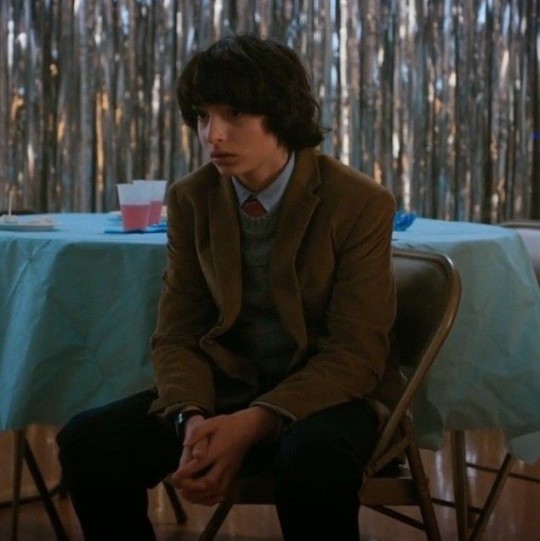
and that's why he immediately went after El because he likes her too right? she's cute and really pretty, she's cool she has powers and saved their lifes so many times already! and he really cares for her and missed her this year and it's like Nancy and Lucas said he must have a crush on her! that must be it. so maybe if he focuses on her these feelings for Will (whatever those feelings might be) will go away and he can be normal right?

and this was his oh fuck i'm in love with him and it won't just go away but it's too late now moment
#byler#mike wheeler#will byers#this is just my personal opinion of course#but i do believe that at the end of s2 when he watched Will dance with a girl#he felt something and there was this little voice in his head telling him it's because he likes Will#but he tried to dismiss it and thought he likes El too so he thought if he'll focus on her#then those feelings for Will will go away that's why he tried to spend every moment in s3 with El#and tried to push Will away (until Will was in danger)#but at the end if s3 he realised that no it's not just a crush that will go away if he's going to be with El#but he's truly in love with Will and there's nothing he can do about it but he lost him now again and it's his fault and and#and yeah i'm sad now
4K notes
·
View notes
Text
ofmd season 1: "hurt people hurt people" mostly from the perspective of Stede, who copes with his trauma through avoidance, hurting himself by hurting those around him
ofmd season 2: "hurt people hurt people" mostly from the perspective of Ed, who copes with his trauma through violence, hurting himself by hurting those around him
both seasons have subplots about healing and growth, about finding love, about what to do with those parts of yourself that are drowning you, and what NOT to do with them, and those storylines and themes help support the main ones, seen through the eyes of our protagonists.
in particular, the parallel deaths in the last episodes of each season (Badminton dying in front of Stede, Izzy dying in front of Ed) have distinct thematic beats as well, in different moments of the main characters' storylines, but are still connected in a similar way: both Badminton and Izzy represent the external voices and pressures that have etched themselves in Ed and Stede and have forced them to hide their true selves in order to survive. in Stede's case, the pressure and bullying was always kind of detached, an overwhelming indifference and casual hatred, while for Ed, the pressure and bullying was always up close and personal, given to him by the very people who claimed to appreciate him. that's why Badminton is a villain we don't care much about, and Izzy is a character that was much more fleshed out by the end, because sometimes the call comes from inside the house, and I thought it was nice the team tried to incorporate some of those nuances into the storyline to help develop the main themes.
#some of my initial thoughts#the effects of these deaths are different because our characters have been growing all along so there are different purposes to them#i wish we had had more episodes to develop some things so it didn't feel so crunched but i see it i see what they've done#but mostly i really love how this season was largely focused on Ed (beloved)#and what his journey is all about#tv#ofmd#our flag means death#ofmd s2 spoilers#wendy watches
447 notes
·
View notes
Text
I can't stop thinking about Isaac Henderson in Heartstopper, and the inherent isolation of being an aroace person in a romance story. Because, at the end of the day, that's what Heartstopper is - it's about the romance between Nick and Charlie. Even when the narrative has expanded outwards to focus on other characters, their plotlines are primarily about romance: Elle and Tao, Darcy and Tara… It's true that Isaac has a loving friend group and the show doesn't devalue platonic love in the way that many romance stories do. But nevertheless, as an aroace person, Isaac is at odds with the genre of the story in which he lives. The tropes that shows like this are built around don't work for him.
Something that really hammers this home is how the scene when Isaac and James kiss mirrors Charlie and Nick's first kiss. In both scenes, two boys are sitting on the floor away from the main action of a party, one admits to having a crush, the other nervously wants to know whether it's them, and then they kiss. In his version of that scene with James, Isaac is experiencing a moment that - for another character - could be a beautiful moment in a romantic storyline.
For viewers who weren't aware of Alice Oseman's promise of an aroace storyline for Isaac, his interactions with James in the early episodes of Season 2 could easily have been interpreted as the beginning of a romantic love story. The rest of the main Heartstopper group have certainly been viewing his friendship with James through that lens, as shown by the way they tease him about it. But those plot beats of a romantic story don't work for Isaac. Trying to fit into the romance genre pushes Isaac in a direction that feels wrong for him. He is the one person in his primary friend group who can't make himself at home in a romance story.
I don't mean this as a criticism of the show. There is a lot of value to love stories like Heartstopper and there is a lot of value to having aspec representation in a show like Heartstopper. But I think this is the reason why Isaac's plotline felt particularly heartwrenching for me. Sometimes being aroace does feel like being out of step with the genre of story everyone else around you is living. Sometimes it feels like trying to find a place for yourself in a narrative that wasn't built for you. Sometimes it feels like trying to prove to yourself (and the world) that you can still have moments that feel like swirling leaves.
#heartstopper#heartstopper s2#heartstopper season 2#heartstopper spoilers#isaac henderson#Comparing this to my other beloved aroace rep...#Georgia in Loveless thinks that she's in a romance story#but it turns out she's in a different kind of love story#Koisenu Futari also feels like a love story without being a romance story#but with Isaac in Heartstopper it's different#because Isaac is actually in a romance story - it just isn't his romance story#Sometimes I struggle with the thought that not having a romance means I can't be a protagonist#I overidentify with the 'best friend' side characters in romcoms every time#awkward aroposting#Aromantic#Aroace
551 notes
·
View notes
Text
you know if the writers actually didn’t care about izzy, they wouldn’t have had him talk to ricky and they would’ve shot him in the head without any chance to say his final words
but i guess if you think izzy is as, or more, important as the main characters despite all evidence to the contrary, this won’t make sense to you
he got more screen time in s2 not bc he was becoming a major character but bc he was getting a send off. the signs were there from the beginning. if you feel blindsided, it’s because you watched the show assuming izzy was going to be something more than a narrative foil and antagonist designed to be a source of conflict between the actual main characters
you can still love a narrative device like izzy, but he was never going to be more than that. sorry.
i should stop trying to explain this anyway because i’m talking to a comparatively small part of the fandom. they’re just loud. and at the end of the day, our love for the show should be louder
#ofmd s2 spoilers#scarrlet rambles#i feel like my posts about this keep getting harsher but it’s partly me trying to figure out some thoughts#about how we got to the point where a post like this is even necessary#and i find it tiresome to argue with people who don’t understand how stories work#and think the rest of us are being heartless and gloating bc our faves survived
278 notes
·
View notes
Text
Okay inspired by this post by @irispurpurea and this post by @ouidamforeman (both of which are excellent, please read) I wanted to add some thoughts about the structural weirdness of season 2.
The reason season 2 feels so structurally WEIRD is that it's the second beat what is now a three act story, but that wasn't written as one in the first place.
Season 1 was a complete, self-contained story arc with completed character development, based on a complete, self-contained novel. The story of Good Omens is about an angel and a demon going from opposite sides to their own side, aligned with earth and its humans. And at the end of season one this story has been told! It's done!
If you want to keep the story going, then, you have two options -- either you find a completely new story to tell with these characters, or you do what Neil Gaiman et al have chosen to do and you complicate and unresolve the conclusion from the first story in order to tell the same story but in an even bigger and more nuanced way.
The challenge of season two, then, is to reframe the events of season one not as a completed story but as the first act of a three-act arc.
And genuinely I think this is just not the way that most TV shows tasked with writing their second season go about doing it. Not that this is a bad choice! But the reason it feels weird on first glance is because it's taking its structure from like... half of the sequel to a novel, not a TV show that gets a second season.
This is the point of all of the historical flashbacks in season 2-- to make us understand that Crowley and Aziraphale are not on the same page and haven't been for 6000 years, despite appearing to be by the end of the first season.
The other thing I think season 2 does is make the whole story about Crowley and Aziraphale's relationship in a way it just wasn't in season 1. Taken on its own, season one's A-plot is the apocalypse, and the B-plot is relationship between this angel and demon.
What season two does then is literally FLIP the importance of those two things structurally. Season one's apocalypse and various side characters now occupy the same place as the Gabriel mystery in season 2. Which is also why it feels so weird to be like "wait this thing that felt like The Big Important Thing before is now suddenly the background of something else."
All this to say, this season is SO structurally interesting because it's just straight up not like other TV shows in structure, and because of the way everything now has to be marketed and framed in trailers as one, more typical kind of story, AND because the first season was a complete story that has now been reframed as an incomplete story, Good Omens season two feels very weird but imo much less weird upon rewatching, and will again feel less weird once we have season 3 and the story gets to complete its arc.
#good omens meta#good omens#good omens analysis#good omens s2#anyway I have been THINKING THOUGHTS lately lmao#and the state of television right now is so fucked but also so interesting to me#if they told the exact same story but as a 12-episode second series instead of two 6-episode series#I think people would feel completely different about it -- myself included!#is Good Omens perfect? no. Do I love it with my whole heart forever? absofuckinglutely#my good omens meta#sitzfleischh.meta
474 notes
·
View notes
Text
okay, here’s my actual thoughtful post: I get why people are upset about the finale…I really do. but I want to mention that there’s a bigger picture to this story that’s missing if you’re zooming too close onto Izzy as a character, and I’m honestly so grateful that the show stuck to the thematic arc it introduced in season 1 because, as per usual, it’s about the themes 🤌 and this show never skimps on the symbolism!!
so here’s the thing: the primary themes are toxic masculinity (& it’s opposite, queer joy); trauma; love as a healing force for the above; and, title alert—DEATH. because it’s so much more than a cool title!
now, Izzy has always represented something metaphorical about all of these points; most directly, he’s always represented masculinity, and s2 has been an arc of toxicity deconstruction. but crucially, he’s also represented all that for Ed, who is the deuteragonist of this show. because—don’t forget—Stede and Ed are the show.
I’ve always doubted myself for feeling this after seeing how fandom saw Izzy as a third romantic figure (which like by all means have a blast in your fanfics I don’t care it’s about joy at the end of the day and pursue that as you want to), but after hearing something about djenks referring to Izzy as a father figure, it confirms a major point for me—Izzy is also in a lot of ways a parallel to Ed’s dad, and a representation of the trauma and guilt Ed felt from that formative killing. for so long, Izzy was an aggressive shadow in Ed’s life, and a tangible reminder of those daddy issues—someone telling him what to do, keeping him Blackbeard—and the beautiful thing is how that changed this season, how Izzy became a version of masculinity that could love and be beautiful and make good from the hurt, the literal poison into positivity. someone antithetical to his own paternalistic force, healing our daddy issues one drag show at a time. BUT, Izzy is still thematically representative within Ed’s arc—and by also representing the trauma that made Ed “Blackbeard,” it does make smart writing sense as to why Izzy died (NOT saying you can’t be sad about it—stick with me for a moment).
because here’s the thing—as aforementioned, this show is also about DEATH. killing is the root of everyone’s trauma, and reconciling a relationship with death is the ultimate arc Ed and Stede are both on, with the ultimate path of learning to live despite its inevitability. there’s a reason it was such a huge thing that Ed couldn’t personally kill, and then in this episode killed so many people with his bare hands in the name of love—and there’s a reason that was framed as a good thing. and there’s also Ed’s (and arguably Stede’s) active suicidality, which has been a huge force driving this season. these are characters who see death as this all-consuming thing, and they see their own deaths as the only solution. death is the traumatic force driving almost everything about their being for so long—and its reconciliation is everything for them, the greatest sign of growth. so Izzy’s death, and everyone beginning again with love—healing each other with love—is a cap to it all. it’s death as a positive force, for once. it’s death as love, not trauma. it’s death as something that will always happen, but this time not forced by your own hand. it’s a death to everything toxic, to what “Blackbeard” represented, and all the while a sort of rebirth. it’s kind of a death to…death? it’s functionally like the real physical moon replacing the giant romantic imaginary orb: it’s taking the thing that’s been artificially morphed in Stede and Ed’s heads and making it real this time, with all the bittersweet emotions that come with tangible reality.
and honestly, I’m glad that it was tragic and emotional. I didn’t think I’d be so devastated to see Izzy die, but it really did get to me, especially because of everything he said to Ricky and then to Ed. but think of it this way: Izzy and Ed might be romantically compelling because they were toxic and charged (and I hope people still enjoy everything they get from that dynamic in fan work), but imagine if the show had actually gone in that direction—where would it take us thematically? it would kill the thesis; it would be love as chaos and entertainment, but not healing. instead, this show gave us something so much more powerful: a legitimate, fully-fleshed trauma arc.
trauma hurts. Izzy’s death hurts. but that’s okay. that’s great, actually! it means the storytelling was effective—that Izzy’s arc made you feel something. and i know this won’t be every viewer’s experience, but honestly? I’m glad I can have this grieving process in such a beautifully framed light in the safe space ship of this show, because let’s be real—death, real life death, fucks you up. and let me tell you, I could’ve used this show during so many episodes of grief in my life. but here it is now, reminding us that our grief and trauma doesn’t define us—and WHAT a powerful thing for queer love, especially, to be presented as the thing that heals us all. ESPECIALLY when so much grief and death in this community is woven so deeply with the trauma of our identity.
so grieve as you need to, but don’t forget to turn the poison into positivity 💛 because that’s what the show is telling us—choose live, despite!
#djenks out here paying my therapy bill yet again#I feel like I need a million disclaimers for this post so just assume I’ve said all of them#and remember that art that hurts isn’t always a bad thing!#I didn’t think I’d have coherent thoughts yet I swear I blacked out and wrote this here we are#ofmd#ofmd season 2#ofmd s2 spoilers#ofmd spoilers#our flag means death#ofmd meta#tw: death#death#tw: suicide#suicide
276 notes
·
View notes
Text
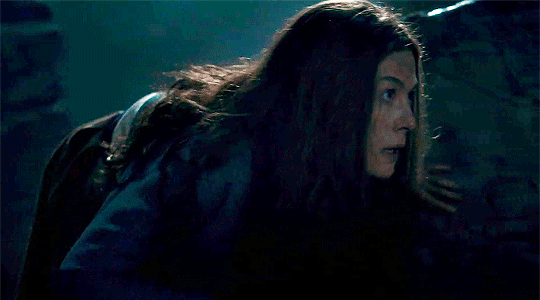
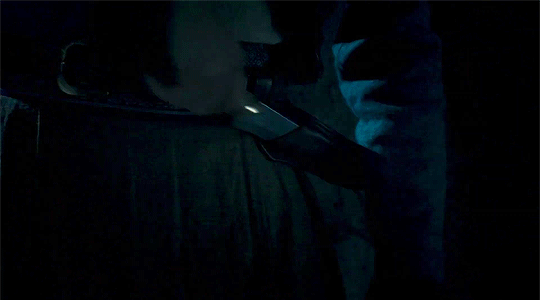


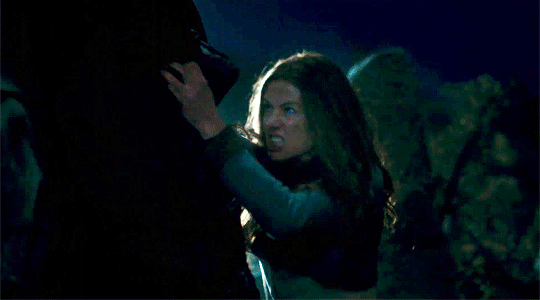
#wotedit#moiraine damodred#the wheel of time#I never learned how to colour dark scenes so this is what it is but I needed it in my virtual scrapbook#bc watching her stab the fade right in the jaw was so exhilarating that I actually cheered#anyway!! I love her and I have many thoughts and feelings about the whole thing#tv: the wheel of time#wot: s2
268 notes
·
View notes
Text
okay im sorry but Hermie is ABSOLUTELY faking his crushes on Scary and Link. he is a goddamn theater kid which means he needs attention more than anything in the world, and that desire more often than not centers around Normal (ESPECIALLY considering "i like you too," which is about attention regardless of whether or not he was lying). literally hes doing the queer high school equivalent of pulling a girl's pigtails at recess by telling Normal about his "crushes" so that Normal will get upset and pay more attention to him. its the same tactic he used with the mascot costume all over again
#banging pots and pans together and screaming my objectively correct (/j) Herm interpretations#HE HATES HIMSELF!!! HE FEELS BAD ALL THE TIME!!! HE DOESNT KNOW HOW TO HANDLE BEING LOVED BUT HE CANT LIVE WITHOUT IT!!!!#GETTING ATTENTION IS THE NEXT BEST THING!!!#thinking about his last moments#he wasn't joking. he wasn't playing into his flirty funny goofy persona#he wasn't asking Scary for a kiss before he went gentle into that good night#he was desperate. he was dying. he needed Normal. surrounded by his beloved uncle and alleged crushes and adults who know more about healing#and he wanted Normal#im having such regular thoughts and emotions guys#dndads#dndads s2#dndads spoilers#dndads s2 spoilers#normal oak#hermie the unworthy#oakworthy#sophomore slump
142 notes
·
View notes
Text
Aziraphale and "I Forgive You"
So after I watched the first season a few times however many years ago, I noticed something, wrote up a bit of a meta about it and then never posted it. I thought that it was either very obvious or very silly and either way, no one needed to see it. But now it's several years and another season later and again, I'm noticing the exact same thing so here it goes- I think the reason Aziraphale keeps saying that he forgives Crowley has overall very little to do with what Crowley has just done right before Aziraphale says it and much more to do with a secret Aziraphale hides deep within himself and has for thousands of years, a truth that he hates to acknowledge and is terrified to speak aloud: he thinks God is wrong to have not Forgiven Crowley.
Get settled in because this is gonna take a bit.
The first time I started noticing this really clearly is the Bandstand Breakup scene. Crowley starts by cussing God literally out- "For the record, great, pustulant, mangled bollocks to the Great blasted Plan." To which Aziraphale says, "May you be forgiven." And yes, Crowley has just sinned and Aziraphale is a stuffy angel but the way Aziraphale says it is like a hope, atleast to my ears. Like he's really wishing that God will see how good Crowley truly is and bring him back to Heaven even though he keeps doing stupid stuff like this
Anyway, Crowley then responds with, "I won't be forgiven. Not ever. Part of a demon's job description. Unforgivable. That's what I am." And Aziraphale responds again with a hopeful sounding, "You were an angel once." At this point, I was almost sure that he's talking about his personal wishes here. It sounds like he's saying, "Come on, Crowley. There's a chance." To which Crowley responds, "That was a long time ago," basically saying it's impossible and shutting that whole bit of the conversation down. And you can just watch Aziraphale's face fall at that, like it kills him for that to be true.
The next time the topic of forgiveness and Crowley comes up is when Crowley shows up to beg Aziraphale to run away with him one last time. In this conversation, Aziraphale is very adamant that if he talks to the right people, they won't want the apocalypse and they'll stop it. He, of course, thinks this because his most core belief is that God is good and that even if we don't understand how what God is doing is good right now, it will lead to goodness eventually via the Rube Goldburg machine which is time and the universe etc aka God is ineffable. But even Aziraphale can't imagine how the ineffable Rube Goldburg machine could turn an event where everything on earth dies into a good one so therefore, he's certain that God doesn't want the Apocalypse.
Crowley responds to this hope with, "You're so clever. How can someone as clever as you be so stupid?" to which Aziraphale responds, "I forgive you" in a very gentle but sure tone. And now yes, while it is entirely possible that Aziraphale is forgiving Crowley for calling him stupid, I've always felt like that would be a rather weighty response considering how mild an insult it is. It's also possible (and I feel slightly more likely) that Aziraphale is forgiving Crowley for his lack of faith, his inability to believe in the goodness of God anymore.
And that could definitely be it, but if we think about the way Aziraphale had talked about forgiveness at the Bandstand, the hope and desire that he seemed to put into the idea of forgiveness and Crowley and the fact that Crowley had dismissed it as entirely impossible for him to ever be forgiven, than a third read of Aziraphale's "I forgive you" emerges: one in which Aziraphale is saying, "While God might never forgive you, I do". It's "I might never see you again since you intend to run away to the stars but if this is the last time I ever see you, I want you to know that I think you are deserving of forgiveness. That I see the good in you even if God can't." It's a combination "I love you" and small rebellion against God, because while Aziraphale can't bring himself to give up on Her completely and run away with Crowley (even though a part of him clearly wants to), he is willing to say that She's done this one thing wrong and it's never forgiving Crowley, who Aziraphale can see clearly is more kind and good than any of the angels he knows.
So yeah, that was about where the idea rested at the end of the first season but now we have a bunch of new historical scenes and a new "I forgive you" following a very loaded conversation in which Aziraphale got extremely excited by the idea of Crowley being reinstated as an Angel and I felt like this idea has even more legs than before.
To me, it's very clear that Aziraphale's pitch for Crowley to come back to Heaven isn't him hoping to "reset" Crowley to how he was before the Fall or him being incapable of loving Crowley as a Demon and instead was him being overjoyed to have this secret truth (Crowley is deserving of God's Forgiveness) that he's been observing for 6000ish years be acknowledged and have a chance to come to fruition. After all, as we saw this season (and honestly last season too but less pronounced), Crowley, current Demon Crowley, not the angel he knew over 6000 years ago, has proven over and over again just how truly good he is to Aziraphale.
For example, in the Job sequence, Crowley does a truly good thing that no Angel (beside Aziraphale) would do or even think that they should do and that is save Job's children. And through the entirety of this bit, Aziraphale basically always believes that he will. There are even two moments where Crowley tries his best to scare Aziraphale away, to play up being the bad guy (so as to better hide the con he's running and protect Aziraphale), but Aziraphale's faith in Crowley's goodness does not falter. At the end of the day, it seems clear that Aziraphale has more faith that Crowley will do the good thing, the correct thing than God. Conveniently for Aziraphale's faith in God though, not understanding how something horrible he hates will eventually lead to goodness in the long run is a foundational principle of said faith so his faith in God remains strong even after everything She and Heaven do to Job.
But his faith in Crowley doesn't require such a complicated work around. He believes Crowley won't kill children and he is correct. Though unfortunately, this very simplicity leads to a new problem, a problem that we can see eventually solidify in Aziraphale's mind, becoming a running theme of their association and leading to the eventual "I forgive you"s.
Aziraphale can clearly see how kind and good Crowley is, how he does the right thing as best he can, even when he could (and sometimes does) get into immense trouble for it. But for some reason, despite repeated evidence that Crowley is everything that Aziraphale believes Angels are and should be, Crowley continues to be a Demon. And once you realize that Aziraphale has noticed this contradiction and that it most likely haunts him and is a constant challenge to his worldview, it colors a lot of what he says in a new light. Many of what seem like simple, self-righteous statements reveal themselves to be Aziraphale trying to protecting himself from a massive logical inconsistency he keeps stumbling across.
"It must be bad, otherwise you wouldn't have tempted them into it," Aziraphale says, clearly not quite sure why it's bad actually.
"You, I'm afraid, are evil," Aziraphale asserts, basically stating that Crowley is evil because he's evil. It's tauntological and therefore doesn't have to make sense. (He says this one shortly before Crowley saves Elsbeth from suicide, poverty and damnation.)
"So this is all your demonic work? I should have known," Aziraphale says, thinking, "Aha, this time Crowley must have done the bad thing and therefore continues to deserve being Fallen." (Crowley has, in fact, not done the bad thing but shhhh, worry about that later.)
Once you notice this self defensive habit, you can't unnotice it really, it's just so present in Aziraphale's logic and speech. Aziraphale even at one point says, "Still a demon, then?" after the Ark and Job and Jesus because on some level he probably doesn't want to actually evaluate, it makes no sense to him that Crowley is still a Demon, especially when he has also sinned in a few ways (lied to Gabriel, thwarted the will of God, technically gluttony etc) and nothing has happened to him, to say nothing for all the things Gabriel has done (or has just let passively happen without a thought to interfere).
So yes, I think the entire final argument plays out the way it does because Aziraphale thinks Crowley is good and deserves to be reinstated, to be forgiven by God more than anything.
He comes into their final conversation nervous but excited, to the point where he stomps right over what Crowley is trying to say. "You see I... I have some incredible good news to give you." The good news is for Crowley, you see, because Crowley deserves this and clearly being forgiven like he so deserves should logically make Crowley happy. It will make Aziraphale happy after all.
Aziraphale then starts to describe the conversation that he had with Metatron, stating that he thinks he might have misjudged him. And why would he think that he misjudged the angel who had told him point blank to his face that "The point is not to avoid the war, it is to win it" about the Apocalypse? Well, it's not because he's offered the job of Supreme Archangel, that's for sure. As we can see in the flashback, Aziraphale seems nervous and uninterested in the job at first. He says clearly that he doesn't want to go back to Heaven and even brings up a very half assed excuse to try and weasel out of it, a soft no of, "Where will I get my coffee?"
No, instead, the clear, obvious point where Aziraphale changes his mind about the job and about the Metatron is when he offers to reinstate Crowley as an Angel. Metatron has, quite accidentally (I think? I don't think he actually knows Aziraphale's secret soul), just said one of the most faith affirming things he possibly could to Aziraphale, "We can correct that little error that's been bothering you. You are completely correct that Crowley deserves God's forgiveness."
Given that, it's understandable that Aziraphale is absolutely bubbly about Crowley's reinstatement when he mentions it to him, like the best thing ever has just happened to him even though he's talking about something that will happen to Crowley and not him at all. "You could come back to heaven and- and everything. Like the old times, only even nicer." (Nicer because this time, they are in love. Nicer because they'll both be powerful enough to make a difference.)
Some other bits of Aziraphale's dialogue from this scene that make so much sense through this lens are:
After Crowley tries to reiterate his constant stance that both sides are bad actually, and mentions how he rejected Hell's offer to work with them again, Aziraphale misses his point completely and says, "But well, obviously you said no to Hell, you're the bad guys. But Heaven, it's the side of truth, of light, of good." Aziraphale's faith in the potential goodness of Heaven and the actual goodness of God is unflappable but so is his belief that good is what Crowley wants to be doing. Like of course a good soul like Crowley would reject working for Hell again but why would he reject a chance to do good like he's sneakily been doing all along? (Aziraphale here ignores the fact that he's also had to sneakily do good on the side sometimes even though he was always working for "the side of good" but that is very par for the course for him sadly.)
The lines, "Come with me- to heaven. I'll run it, you can be my second in command. We can make a difference," are a particularly telling set. Everything about these from the high position he's offering Crowley to the "We" scream that Aziraphale trusts Crowley, a Demon, to guide Heaven the correct way more than any angel already in Heaven.
Aziraphale's final, desperate argument also lines up well with this (as well as featuring Aziraphale more completely referencing how he wants him and Crowley to be together romantically). "Come back, to heaven. Work with me! We can be together. Angels... Doing good. I- I need you! I don't think you understand what I'm offering you." Like is the "I need you" here romantic? Definitely. But it's also Aziraphale again affirming that he trusts Crowley to lead him the correct way ie goodness, because, as it's been shown to us many times (and focused on particularly in this season), Crowley will do and always has been doing the correct thing as best he could while Aziraphale would dither and be locked into passivity (like in The Resurrectionists).
So yes, after many attempts to explain to Crowley how he should be in Heaven, doing good and Aziraphale needs his help and one last desperate kiss from Crowley, we reach the final dreaded, "l forgive you." And yes, maybe Aziraphale is forgiving Crowley for not having faith that they can fix heaven, for abandoning him, for kissing him so suddenly. But I hope, after everything I've laid out here in this essay, you can also see why I think Aziraphale is saying, "Even as you reject God's forgiveness and leave me behind, I still see that you are good and know you deserve it so I will forgive you anyway." And maybe, even though it's still blasphemous to disagree with God, it's less scary for Aziraphale to say "I forgive you" one more time than tell Crowley that he loves him for the first time. He is very good at forgiveness after all.
#good omens#good omens meta#ineffable husbands#aziraphale#aziracrow#ineffable partners#crowley#good omens crowley#good omens season two#good omens s2#GOS2 Spoilers#Fingers crossed that next season Aziraphale realizes that while yes#Crowley is quite good#he doesn't need to be forgiven because he is in fact the wronged party here but we shall see#My GO Thoughts and Feels#I sure do hope it's apparent how much I love Aziraphale from this and it doesn't come across super negatively#This is forever a no Aziraphale hate allowed zone#but yes I spent forever writing this#so I hope it's clear#I need to post more of these sorry I'm a coward lols
288 notes
·
View notes
Text
Unpopular opinion : I really hope they'll have Joey wear a wig in S4 and S5, to continue to keep his hair longer regardless of his real hair's length, because having Jaskier suddenly go back to his S1 short hairstyle would feel like he would have suddenly regressed as a character, somehow?
I dunno...
It's like I've associated the long hair with a more confident, grown, and mature version of his character, and it would feel odd to suddenly have Jaskier go back to looking like he's that 20 year old kid struggling with finding success in his career, love and acceptance from his friends, and trying to figure out what pleases him in life...
Like, don't get me wrong! Joey's hair looked fantastic during that reading! I'm not saying short hair doesn't suit him!
But Joey physically looked like Joey, or a very "baby version" of Jaskier.
Just like Hugh physically looked like Hugh.
Radovid, in my mind, has those soft, long, wavy reddish-blonde locks.
And 40+ y.o. Jaskier has long silky hair.
If they somehow go "Hey, so in our story Geralt now looks like Liam and, BTW! Jaskier also suddenly has short hair again!" there's a very big risk I'll suddenly be thrown off by the sudden "blast from the past" thing happening...
I mean, it took Jaskier almost 2 decades to outgrow that S1 look! Having him suddenly go back to looking the same as he did from age 20 to his late 30s would feel so bizarre to me, somehow...
Like, he doesn't need to have his hair styled like S2 or S3, but keeping a longer hairstyle on Jaskier as a character would be really nice.
#Jaskier#The Witcher#Weird psychological hair associations my brain is now making...#It's probably kinda their fault too!#They've so often said that they've kept Jaskier's hair longer in S2 and S3 to show the passage of time...#That my brain apparently completely grew attached to that idea...#And so now having Jaskier suddenly go back to his short hairstyle would feel like they randomly de-aged him or he'd started aging backwards!#Something in my head just can't make it compute!#My thoughts
73 notes
·
View notes
Text
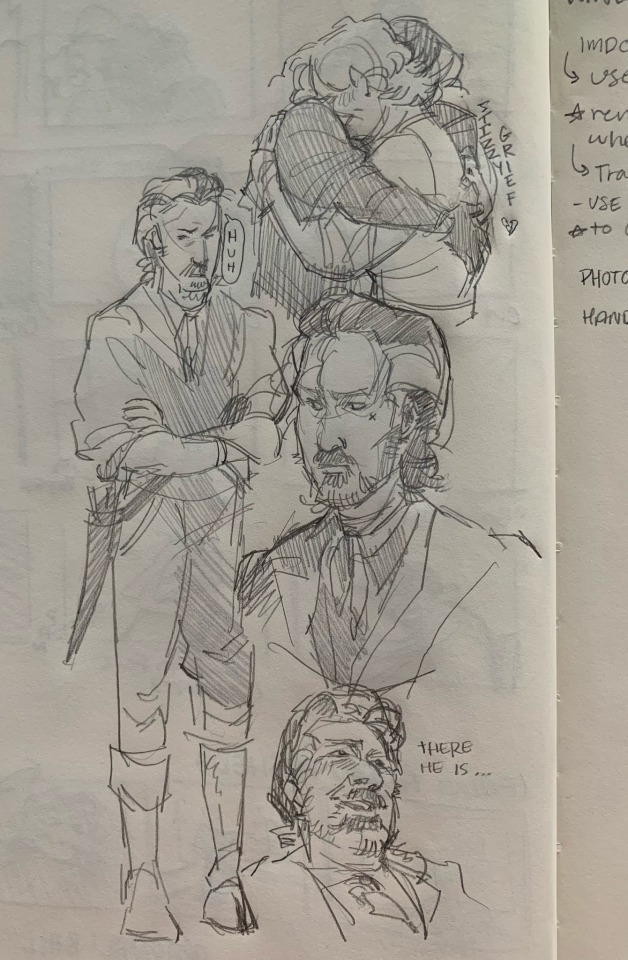
missing him, wishing i had it in me to have made more fanart this season
#i really loved s2#i see and feel the frustration for the finale especially as such a huge izzy fan but i still rlly love this show#and i think hes still so valuable#no discourse or heavy slander please but feelings are welcome#ofmd spoilers#izzy hands#stizzy#(gently)#my art :)#paper thoughts
334 notes
·
View notes